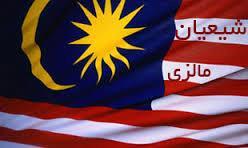Islamic Revolution and Shia Currents in Malaysia

In Malaysia, a large segment of the elites community have been inspired by the Islamic Revolution’s anti-arrogance stance and are among the revolution’s supporters despite being Sunni Muslims.
It is not the Islamic Revolution’s primary objective in South Asia to spread Shi’ism and what has actually inspired the region’s intellectuals regardless of religious and sectarian differences is the fundamental principles of the revolution, including confrontation with the hegemonic system and the Occupying Zionist regime.
Prior to the victory of Iran’s revolution, a large number of Malaysian intellectuals had met Iranian revolutionaries while studying in universities in different countries like Germany, Britain, France, and the US and learned about the ideas of Imam Khomeini (RA) back then.
Many of the Malaysian statesmen in different capacities were among these students who were inspired by the pure Muhammadan Islam at a time when the Orient was under the domination of the US and the West.
When the Malaysian studying abroad returned to their country, they told their countrymen and their students about the accomplishments of the Islamic Revolution and how an Islamic country, Iran, has managed to stand up against the West relying on its Muslim nation. Many of them even had the opportunity to meet with Imam Khomeini (RA) in Jamaran, Tehran, and have since talked frequently about their trips to Iran.
These intellectuals do not have Shia beliefs and are only defending the Islamic Revolution as they are inspired by Imam Khomeini’s (RA) ideas.
Gradually, political and security pressures have been mounted against these intellectuals forcing them to hide their political inclination as they have been accused of having Shia beliefs. This is while they are Sunnis who do not consider Shi’ism a deviated sect but believe that a constructive dialogue with the Shia world can contribute to Malaysia’s political, economic and cultural progress. They believe that diversity of Islamic schools of thought is not a threat, but an opportunity.
Among other factors that contributed to the spread of Imam Khomeini’s (RA) anti-hegemony and revolutionary ideas in Malaysia was the publication of articles about the Islamic Revolution by Malaysian journalists and authors in the country’s newspapers.
There were attempts in Malaysia even at that time to prevent the reflection of news about the Islamic Revolution but the of the greatness of the Islamic Revolution and its influence on the ensuing movements around the world made it very difficult to conceal news about this event.
Another reason for the spread of the Islamic Revolution’s ideas in East Asia was the universal slogans of the revolution and its ability to give hope to the future generations, hope that Muslim youth, from all schools of thought, can take their destiny in their own hands by putting an end to the domination of Eastern and Western arrogant powers through following the guidance of the Quran and the Holy Prophet’s (PBUH) Sunna and serving God.
These slogans inspired Malaysian youth and created a great movement toward reviving the Islamic civilization and even political Islam in the government.
Pro-Western political currents made significant attempts to convince Malaysian kings that the messages of the Islamic Revolution about revival of serving God, confronting the arrogant powers, and reviving Islamic values would lead to the elimination of the country’s monarchy. Using this tactic, they changed the kings’ moderate views about Shi’ism and the Islamic Revolution to one of pessimism whereas all of Shia or Sunni Muslim intellectuals who support the Islamic Revolution have clearly said that their activities and aspirations are within the framework of Malaysia’s constitution and based on respect to national norms and the country’s flag.
One more reason why the Islamic Revolution is popular with Malaysians of all faiths is that the Iranian people have managed to create a powerful and developed country relying on their own capabilities and this has been realized due to the guidance of the Islamic Republic’s founder Imam Khomeini (RA) and the Supreme Leader of the Islamic Revolution Imam Khamenei.
Many Malaysian intellectuals, while praising Mahathir Mohamad for his role in leading Malaysia to success, believe that investments by the US and Arab countries in Malaysia’s economy have helped to bring about its development and that Malaysia is now a debtor to these countries. They say this development has not been achieved relying on domestic talents and capabilities and cannot be viable.
Saudi Arabia, as the main creditor, has managed to impose its political demands on the Malaysian government, including the demand that radical Wahabis be given free hands in Malaysia.
Hence, many Malaysians, even non-Muslims, criticize Kuala Lumpur’s dependency on the West and pro-Western Arab countries.
It is the policy of “Neither the East, Nor the West” of the Islamic Republic of Iran and its reliance on own resources and Islamic values that cause Muslims in East Asia and elsewhere in the world to feel proud.
Prior to the victory of the Islamic Revolution, many Muslims around the world were distancing from the teachings of Islam. It was the victory of Iran’s Islamic Revolution that inspired Muslims to hold fast to the Rope of God, revive Islamic values and close their ranks in confronting the world arrogance.
This has worried the pro-Western currents in Malaysia about the spread of the Islamic Revolution that has planted seeds of hopes in the hearts of world Muslims.
Mahathir’s recent tendency towards the West and his criticism of the Islamic Republic of Iran’s polices are the results of pressures from pro-Western Arab countries and that is why he has inadvertently paved the way for emergence of radical currents in the region.
1318361


